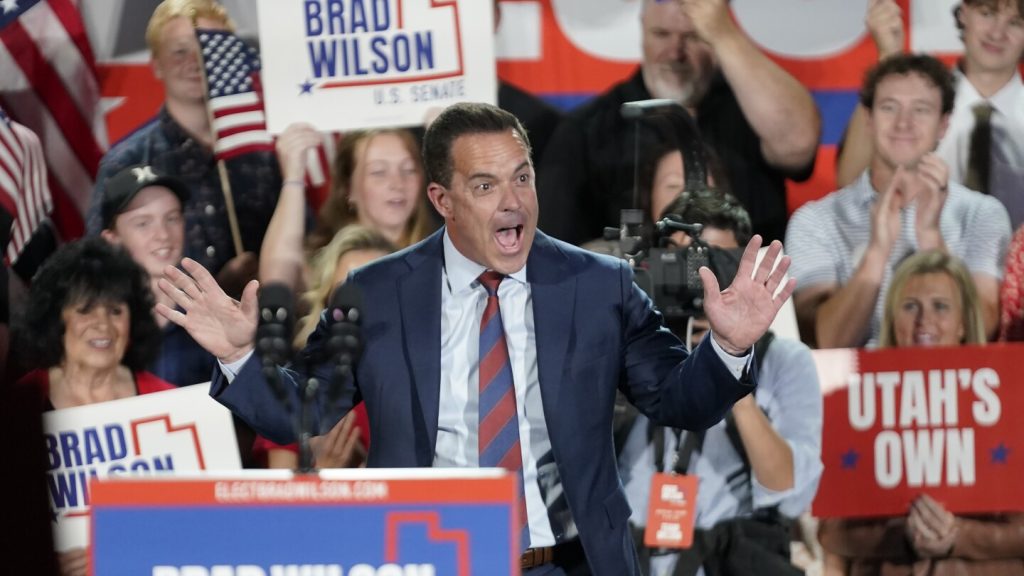A contentious race to replace Mitt Romney in the U.S. Senate is underway in Utah, with a dozen Republicans vying for the party nomination. The candidate selected on Saturday at the state GOP convention will have a chance to appeal to the most zealous party members and potentially gain an advantage in the race. However, losing candidates will still have the opportunity to qualify for the primary ballot by gathering signatures, ultimately leaving Republican voters to decide who will succeed Romney.
The political landscape in Utah is shifting as candidates align themselves with either the moderate wing represented by Romney or the conservative values espoused by Senator Mike Lee, who supports former President Donald Trump. Observers are eager to see which brand of political conservatism resonates most with modern voters in the state. Political science experts believe that the successful candidate will be the one who best connects with general Utah Republican values, rather than taking extreme positions to win over convention delegates.
The crowded race includes prominent figures such as a congressman, a former state legislative leader, and the son of a former senator. The outcome of this race is expected to set the tone for the post-Romney era of Utah conservatism and serve as a litmus test for Trump’s popularity in the state. While candidates closely aligned with Trump may perform well at the convention, experts anticipate a more moderate candidate like U.S. Rep. John Curtis to prevail in the primary, reflecting a trend where being anti-Trump could be advantageous in the state.
Trump’s popularity within the Republican Party in Utah is complex, as his support has been tepid among members of The Church of Jesus Christ of Latter-day Saints, who make up a significant portion of the state’s population. Candidates like Curtis have distanced themselves from Trump and even Romney, opting to forge their own paths in the Senate. However, parallels between Curtis and Romney have been drawn due to their efforts to push the Republican Party on issues like climate change. While some candidates have endorsed Trump, others have been more discreet about their support for the former president.
The candidates in the Senate race have notably not sought Romney’s endorsement, a departure from typical races with a departing incumbent. Instead, they have sought the support of Senator Mike Lee, who has not yet endorsed anyone in the race. Some candidates have already secured their spots on the primary ballot through signature gathering, with fundraising efforts underway to support their campaigns. The state GOP convention will also determine nominees for other prominent offices, including governor and Congress, with incumbent Gov. Spencer Cox expected to prevail in the primary despite facing some challengers.
In a state where Republican delegates may not fully represent the party’s broader membership, the outcome of the convention may carry little weight in determining the ultimate Republican nominee to succeed Romney in the U.S. Senate. While some candidates may align themselves with Trump to appeal to convention delegates, others, like Curtis, have chosen a more moderate path, reflecting the diverse political landscape in Utah. The race to replace Romney is expected to shape the future of conservatism in the state and provide insight into the influence of Trump within the Republican Party.















